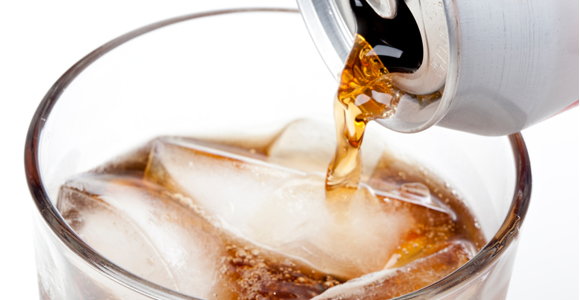Some dieters are under the impression they only need to monitor the calories in the foods they eat, not what they drink, to shed a few extra pounds. But the truth is unhealthy beverages are just as fattening as unhealthy foods. If you don't pay any mind to your intake of liquid calories, you might find it impossible to manage your diet and meet your weight loss goals.
You might not realize how many calories you consume every time you take a sip of your favorite soft drink or juice. The average sugar-sweetened soft drink contains roughly 150 calories per serving. Most fruit juices aren't any healthier either. One cup of orange juice contains about 120 calories. It's easy to see how quickly calories add up if you consume sugar sweetened drinks.
Liquid Calories: A Diet Bust
Research suggests liquid calories can be an even bigger diet bust than food. The American Journal of Clinical Nutrition found a stronger link between cutting liquid calories and losing weight than it did between reducing solid calories, or food, and losing weight. Even if you don't think you can stop drinking your favorite sugary drinks completely, you should at least try to reduce your consumption of these drinks. The study found those who reduced their consumption of sugar sweetened drinks by just 1 serving daily lost 1 pound more than those who didn't after 6 months. Cutting liquid calories wherever you can will certainly help you lose weight.
High Fructose Corn Syrup
Soda companies sweeten most soft drinks with high fructose corn syrup instead of beet or cane sugar. Companies do this to save money, as high fructose corn syrup is just as sweet as cane sugar but much cheaper to buy. Unfortunately, there is evidence to suggest high fructose corn syrup could be even more fattening than white sugar. As its name suggests, a large percentage of the sugar in high fructose corn syrup comes in the form of fructose. The body processes fructose in the liver, but high consumption of fructose could overwhelm it. If your liver can't handle all the fructose, it will convert the fructose into fat and release it as triglycerides into the bloodstream. High triglycerides in the bloodstream could lead to the development of heart disease. Studies have also found high fructose corn syrup consumption to be associated with higher occurrences of type 2 diabetes. Not all soft drinks contain high fructose corn syrup, but soft drinks sweetened with beet or cane sugar still contain the same amount of calories as beverages sweetened with corn syrup.
A good rule of thumb is to keep a diet journal to record your total daily caloric consumption. Your journal should, of course, include liquid calories in addition to the foods you eat. It might surprise you to realize just how many calories you drink every day. If you're struggling to meet your weight loss goals, you could consider swapping soda or juice with a glass of water with a slice of lemon as a healthy, flavorful alternative.



